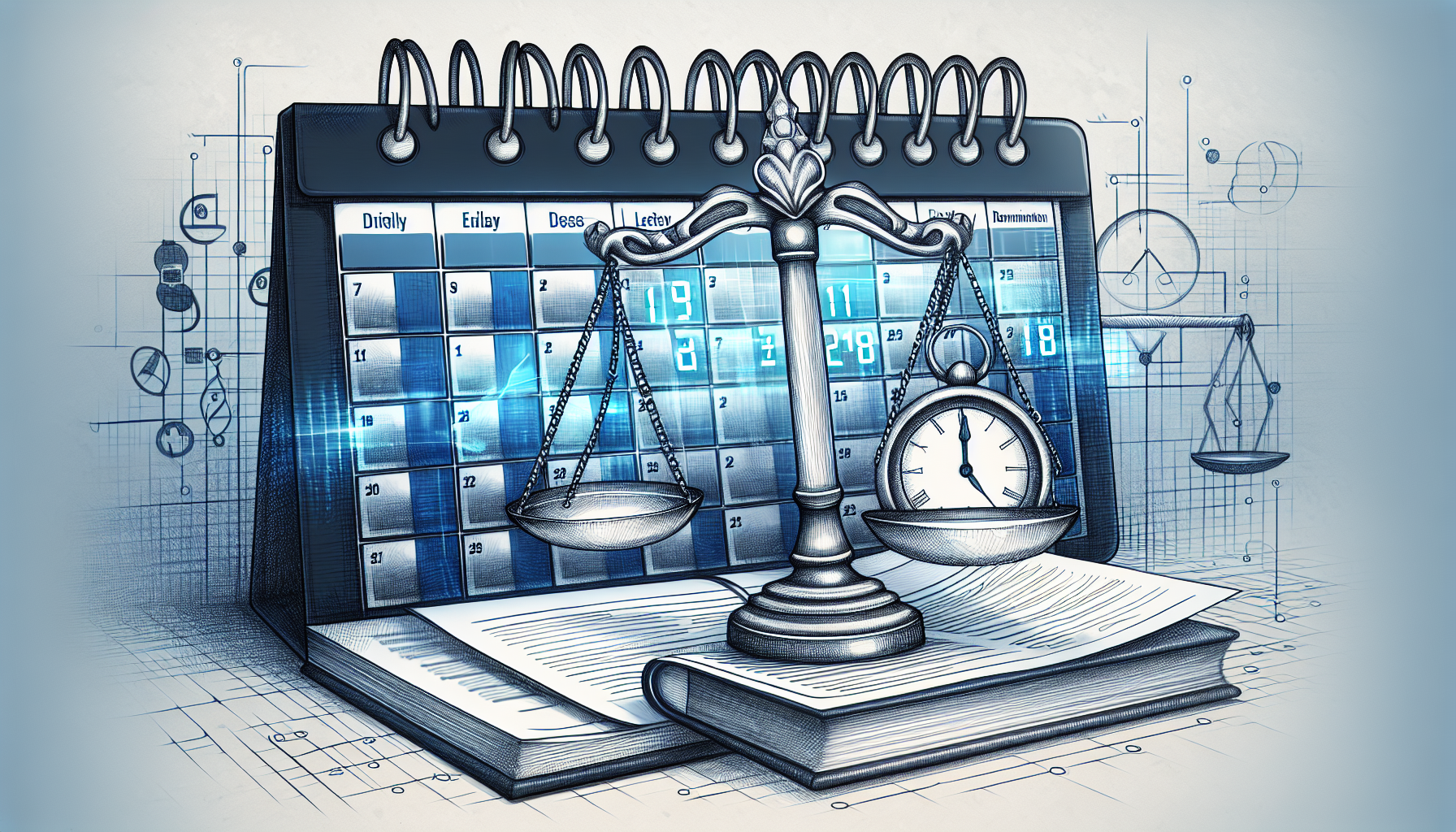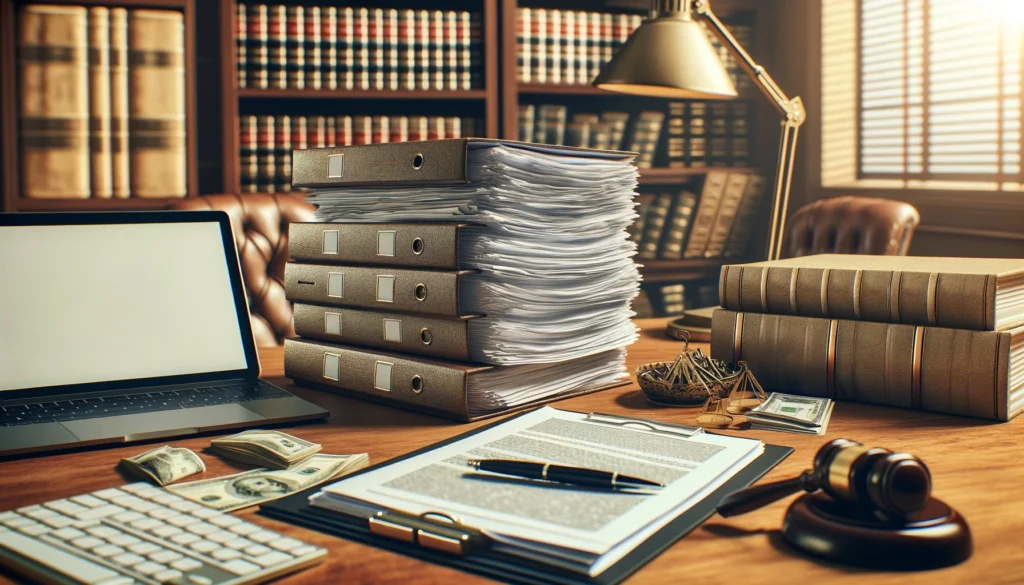
Harnessing AI for Legal Efficiency: The Modern Paralegal’s Toolkit
The growing integration of AI in the legal industry is revolutionizing the way paralegals operate, significantly enhancing productivity and efficiency. Artificial Intelligence (AI), particularly Large Language Models (LLMs) like ChatGPT, plays a pivotal role in this transformation. These models are capable of understanding and generating human-like text, which streamlines various routine tasks that paralegals undertake.
LLMs such as ChatGPT are invaluable for conducting legal research, drafting documents, and providing real-time support to legal professionals. By leveraging this technology, paralegals can focus more on client interactions and strategic thinking, rather than getting bogged down by administrative tasks.
Setting the Foundation: Understanding Personal Injury Case Deadlines
One of the most critical aspects of managing personal injury cases is adhering to strict deadlines. These timelines ensure the timely progression of a case and prevent possible legal repercussions. Key deadlines in personal injury cases typically include:
- Statute of Limitations: The timeframe within which a lawsuit must be filed, usually ranging from one to six years depending on the jurisdiction.
- Discovery Deadlines: Specific periods for gathering evidence and conducting depositions.
- Motion Filing Deadlines: Deadlines for filing motions such as summary judgment, which can significantly impact the course of the case.
- Settlement Conferences: Scheduled meetings for negotiating settlements before trial.
Missing any of these deadlines can result in severe consequences, such as dismissal of the case or exclusion of valuable evidence. Therefore, it is essential for paralegals to meticulously track and manage these deadlines to ensure compliance.
Also read:
Preemptive Prompting: Creating Effective Initial Queries
Effective utilization of LLMs begins with crafting precise and goal-oriented prompts. The quality of the input directly influences the relevance and accuracy of the AI-generated responses. Here are some strategies for creating initial queries:
- Be Specific: Clearly define the information or task you need assistance with. For instance, “Draft a motion to compel discovery in a personal injury case” is more precise than “Help with a motion.”
- Contextual Details: Provide background information to help the AI understand the context. Example: “Provide a summary of the statute of limitations for personal injury cases in California.”
- Iterative Refinement: Start with a broad query and then refine the prompt based on the initial response. Example: “Summarize recent changes in personal injury laws” followed by “Focus on changes in discovery procedures.”
Utilizing these strategies ensures that the information curated from LLMs is comprehensive and pertinent, paving the way for efficient case management.
Also read:
Calendaring with ChatGPT: Streamlining Deadline Management
Effective deadline management is vital for the seamless progression of personal injury cases. ChatGPT can be instrumental in creating and managing timelines. Here’s how:
- Timeline Creation: By inputting key dates and deadlines, ChatGPT can generate a detailed timeline for the case. Example prompt: “Create a timeline for a personal injury case with a filing deadline of June 1, 2023.”
- Setting Reminders: ChatGPT can suggest key reminders and alerts to ensure critical deadlines are not missed. Example prompt: “Set reminders for all major deadlines in the above timeline two weeks in advance.”
- Integration with Calendaring Tools: Results from ChatGPT can be integrated with calendaring tools like Outlook or Google Calendar by exporting the timeline in a compatible format. Example prompt for formatting: “Format the timeline as an Excel sheet with columns for dates, tasks, and reminders.”
By leveraging these features, paralegals can maintain organized and up-to-date schedules, thereby reducing the risk of missing crucial deadlines.
Also read:
Document Drafting and Review: Enhancing Accuracy and Speed
LLMs like ChatGPT can substantially expedite the process of drafting and reviewing legal documents. Here’s how paralegals can enhance their workflow:
- Drafting Documents: By providing detailed prompts, ChatGPT can generate drafts of pleadings, motions, and other legal documents. Example: “Draft a complaint for a personal injury case involving a slip and fall accident.”
- Proofing and Error-Checking: ChatGPT can quickly review documents for errors and suggest corrections. Example: “Review the following motion for grammatical and legal errors” followed by the text of the motion.
These capabilities not only increase speed and accuracy but also free up more time for paralegals to engage in substantive legal work.
Also read:
Client Communication: Crafting Polished and Precise Responses
Effective client communication is crucial in maintaining trust and clarity. ChatGPT provides tools to help streamline this aspect:
- Templates for Frequent Queries: Example prompt: “Create a template for responding to clients asking about the status of their personal injury case.”
- Clear and Empathetic Communication: Example prompt: “Generate a sympathetic yet informative response to a client concerned about the length of their case.”
Such prepared responses can ensure that communication is both clear and empathetic, ensuring clients feel heard and informed.
Also read:
Fine-Tuning and Feedback: Refining AI Responses for Superior Output
Refining AI-generated content requires an iterative approach:
- Iterative Prompting: Regularly refine prompts to enhance output quality. Example: “Improve the clarity and depth of the previous summary on personal injury laws.”
- Incorporate Feedback Loops: Use feedback from previous outputs to guide successive prompts. Example: “Based on the inaccuracies identified, provide a more precise definition of discovery deadlines.”
This process ensures more accurate and tailored results, improving efficiency and reliability.
Staying Ethical: Navigating the Limits of AI Assistance
While AI offers vast potential, it is crucial to navigate its limits ethically:
- Understanding Limitations: AI should supplement, not replace, professional judgment. Use AI-generated insights as a starting point rather than a final answer.
- Confidentiality and Compliance: Always ensure that sensitive information is handled in compliance with legal and ethical standards. Avoid sharing confidential details in AI prompts.
Staying mindful of these considerations ensures the responsible and ethical use of AI in legal practice.
Also read:
Conclusion: Empowering Paralegals Through AI Innovation
Integrating AI into the legal workflow offers numerous benefits, from enhancing efficiency to ensuring meticulous deadline management. As paralegals adopt these strategies, they can significantly improve their productivity while focusing on more meaningful aspects of their work.
In this dynamic landscape, continuous learning and adaptation to new technologies are paramount. By harnessing tools like ChatGPT, paralegals can become invaluable assets in modern legal practice, driving success and innovation.


